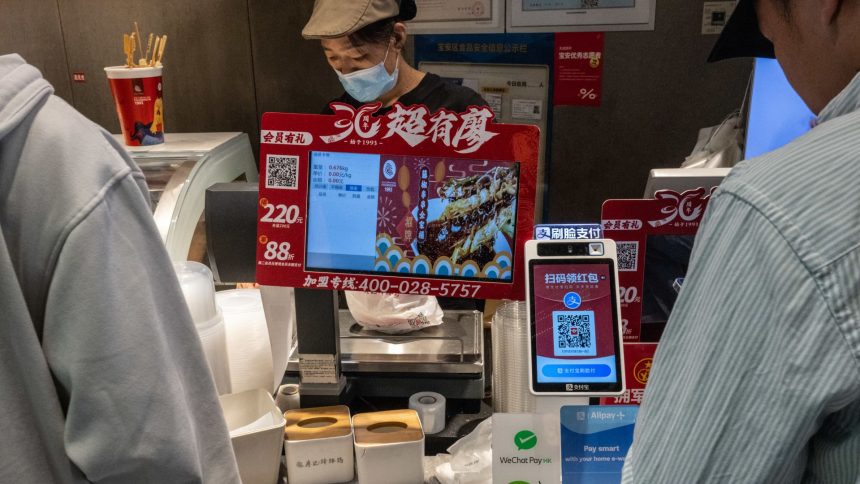BEIJING — Foreign visitors to China can now spend up to $2,000 a year using the mobile app Alipay without having to register their ID, the app operator said Friday.
That’s four times more than the previous limit of $500, a move that will impact international tourists the most. The number of foreign travelers to China had declined after the country temporarily imposed strict border controls during the pandemic.
The increased transaction limit reflects Beijing’s push this year to make it easier for foreign travelers to pay for daily purchases in a country in which mobile payment has become ubiquitous.
However, stringent real-name verification policies have often made it difficult for foreign visitors to China to use mobile pay.
Alipay, operated by Alibaba-affiliate Ant Group, is one of two major mobile payment apps in China. Tencent-owned WeChat Pay operates the other commonly used app.
Tencent did not confirm an exact figure for ID-free transactions using WeChat Pay, but noted foreigners could complete some payments without registering their ID.
Ant also announced Friday that international travelers who register their ID with Alipay can use the app for single transactions as large as $5,000, up from $1,000 previously.
The annual transaction limit for those who register their IDs is now $50,000 — five times more than the previous cumulative amount of $10,000, Ant said.
The changes in transaction amounts follow announcements this month from the People’s Bank of China for such increases.
Ant said the changes apply to foreign visitors to China who download Alipay, or who use 10 specific overseas mobile pay apps.
The program, called Alipay+, lets existing users of certain mobile payment apps from Singapore, South Korea, Thailand, Malaysia, Mongolia, Hong Kong and Macao scan Alipay QR codes directly to pay in China.
In early February, People’s Bank of China Deputy Governor Zhang Qingsong told CNBC that foreign visitors using Alipay or WeChat Pay did not need to provide ID information if the annual transaction volume was below $500.
“We are also looking at the possibility of raising the $500 threshold in the future,” he said at the time.
Read the full article here




